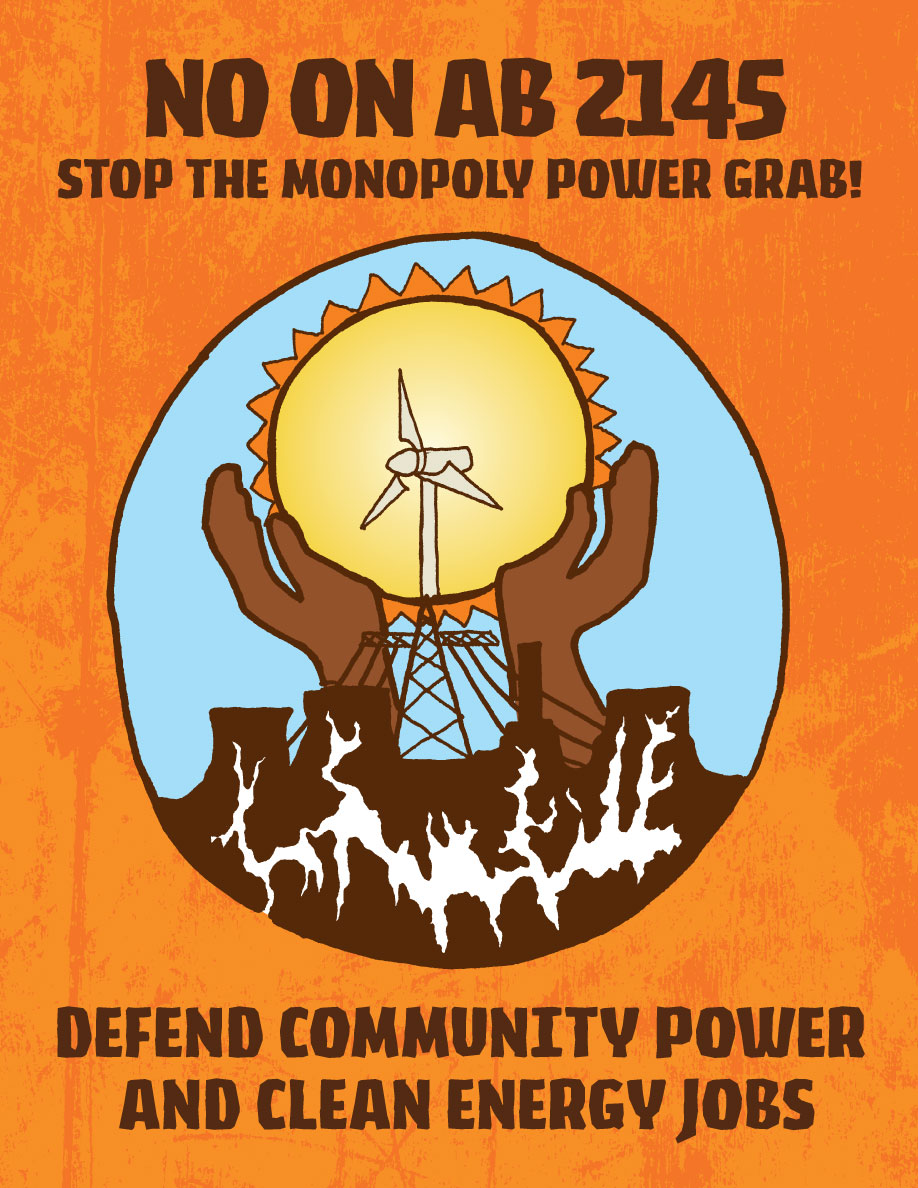 On June 23 AB 2145 passed out of the California Senate’s Energy Committee somewhat weakened but still tremendously lethal.
On June 23 AB 2145 passed out of the California Senate’s Energy Committee somewhat weakened but still tremendously lethal.
The bill, introduced by powerful corporate forces, is meant to kill Community Choice energy programs in California.
Despite a powerful statewide effort to bury AB 2145 in the Senate Committee (see for example, the June 19 Oakland protest), the bill emerged intact, but in an amended form. While its most problematic provision (opt-in) was removed, AB 2145 still contains two caustic provisions, and a newly proposed, anti-competitive geographical limitation.
It is now headed to the Senate Appropriations Committee for action on August 4.
On June 19, a spritied noon-time crowd of over sixty people rallied outside PG&E’s Webster Street payment center in downtown Oakland to protest PG&E's backing of AB 2145, the Monopoly Utility Power Grab of 2014. The bill is meant to prevent the establishment of new community-based energy programs under California's 2002 Community Choice energy law.
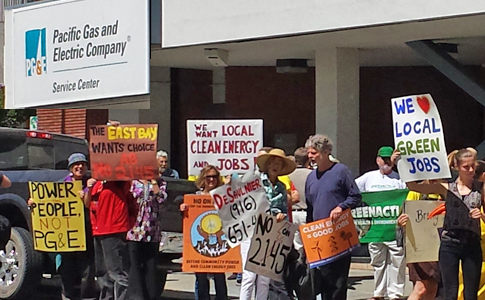
The rally, organized by the Local Clean Energy Alliance and the Sierra Club Bay Chapter, demanded that PG&E stop using ratepayer dollars to undermine the Community Choice energy law, thereby denying communities a greener and lower priced alternative to PG&E electricity.
On Tuesday, June 3, 2014, the Alameda County Board of Supervisors voted to take the first steps in establishing an East Bay Community Choice energy program, approving $1.3 million in funding for an exploratory phase.
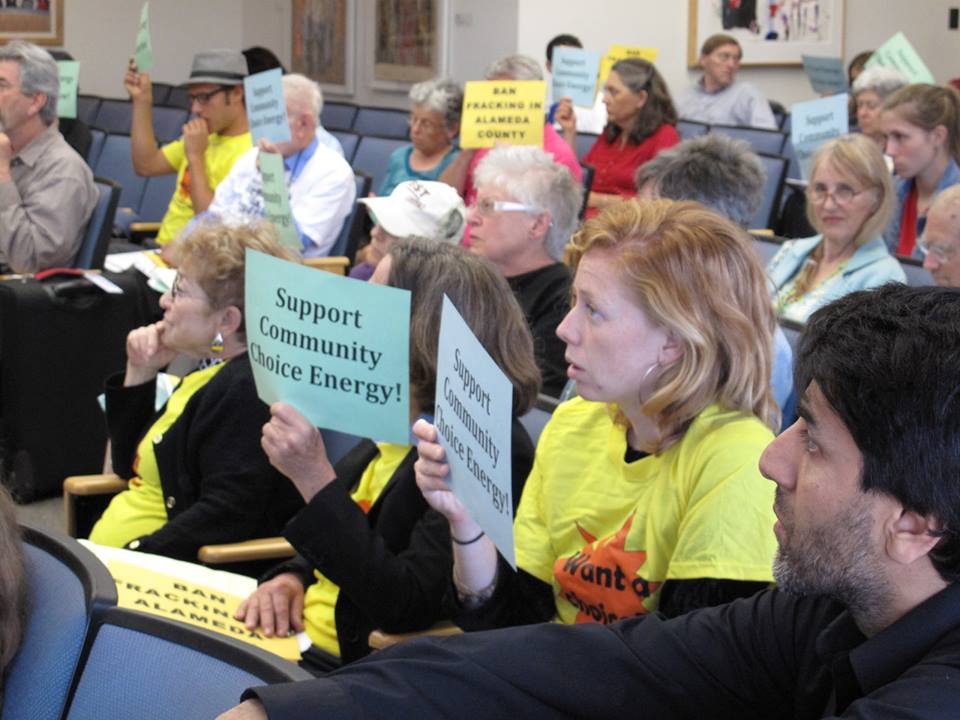
The Board chambers were packed with supporters, many wearing yellow T-shirts with the slogan “Want a Choice?” and waving color-coordinated signs reading “Support Community Choice Energy!”
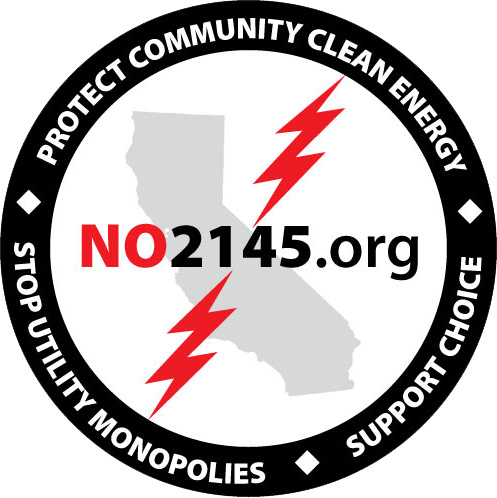 Californians for Energy Choice, a diverse coalition opposing an effort by the state's investor-owned utilities to gut Community Choice energy, decried passage of AB 2145 by the California Assembly on May 28. Labeling the bill the "Utility Monopoly Power Grab of 2014," the coalition noted that if passed by the California Senate and signed into law, AB 2145 would dangerously undermine California’s efforts to reduce greenhouse gas emissions and to create thousands of local clean energy jobs.
Californians for Energy Choice, a diverse coalition opposing an effort by the state's investor-owned utilities to gut Community Choice energy, decried passage of AB 2145 by the California Assembly on May 28. Labeling the bill the "Utility Monopoly Power Grab of 2014," the coalition noted that if passed by the California Senate and signed into law, AB 2145 would dangerously undermine California’s efforts to reduce greenhouse gas emissions and to create thousands of local clean energy jobs.
In the past few weeks, over one hundred fifty local governments, government agencies, businesses and business associations, public officials, and grassroots community and environmental organizations have registered strong opposition to AB 2145. The Local Clean Energy Alliance has taken a prominent role in organizing this opposition.
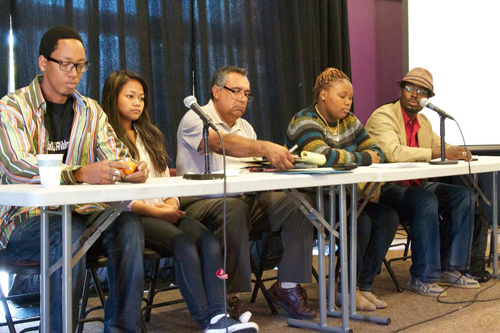 On Saturday, April 5, the Clean Energy & Jobs Oakland Campaign of the Oakland Climate Action Coalition hosted a community forum and town hall on the future of energy in Oakland: "Growing Clean Energy Jobs in Oakland." Many thanks to all who partnered, participated, spoke, and volunteered!
On Saturday, April 5, the Clean Energy & Jobs Oakland Campaign of the Oakland Climate Action Coalition hosted a community forum and town hall on the future of energy in Oakland: "Growing Clean Energy Jobs in Oakland." Many thanks to all who partnered, participated, spoke, and volunteered!
Youth UpRising in East Oakland provided the venue for an exciting day of people-powered solutions for climate action, clean energy, and jobs. 100 people of all ages and backgrounds representing the beautiful diversity of Oakland, and over twenty partnering organizations came together to explore possible answers to the questions, "How do we create more jobs for our community, especially our youth? Is it possible for those jobs to be good for people AND for the planet? ...and how can the COMMUNITY, including youth, lead the way?"
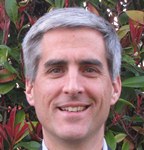 By Rosana Francescato
By Rosana Francescato
At a recent Local Clean Energy Alliance event in Oakland, Brad Heavner, Policy Director for the California Solar Energy Industries Association (CALSEIA), gave the scoop on what’s happening next with net metering in California and talked about the implications of AB 327, signed into law last year.
Initially, solar advocates opposed the bill. But without AB 327, net metering, which has resulted in several thousand megawatts of installed solarPV in California, would have expired at the end of 2014. The bill preserves net metering into 2017, but it contains a number of other more controversial provisions. As a result, reactions to the bill have been mixed.
But most importantly, AB 327 leaves the future of net metering up in the air.
Submitted by admin on Wed, 11/13/2013 - 10:58
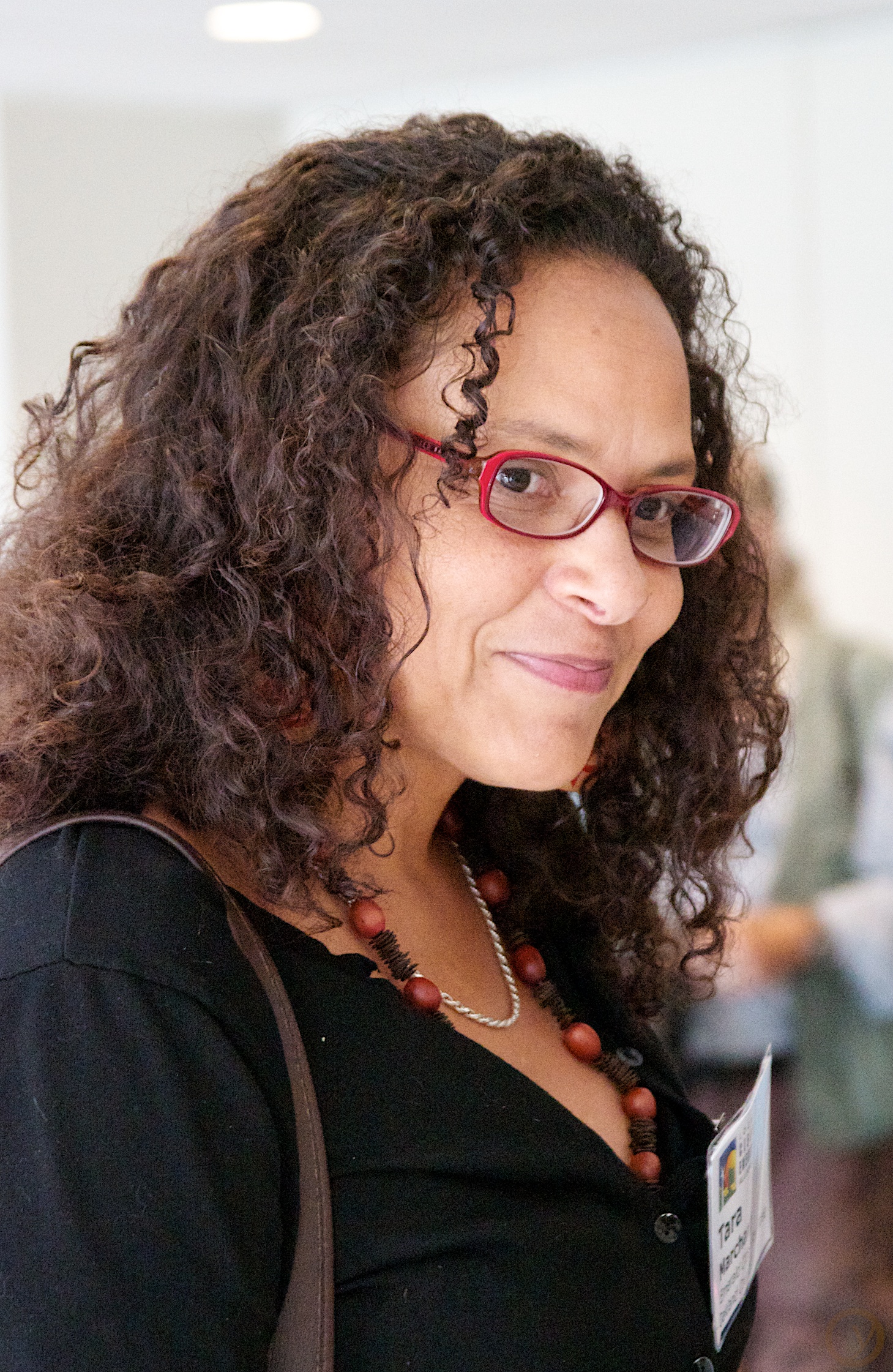
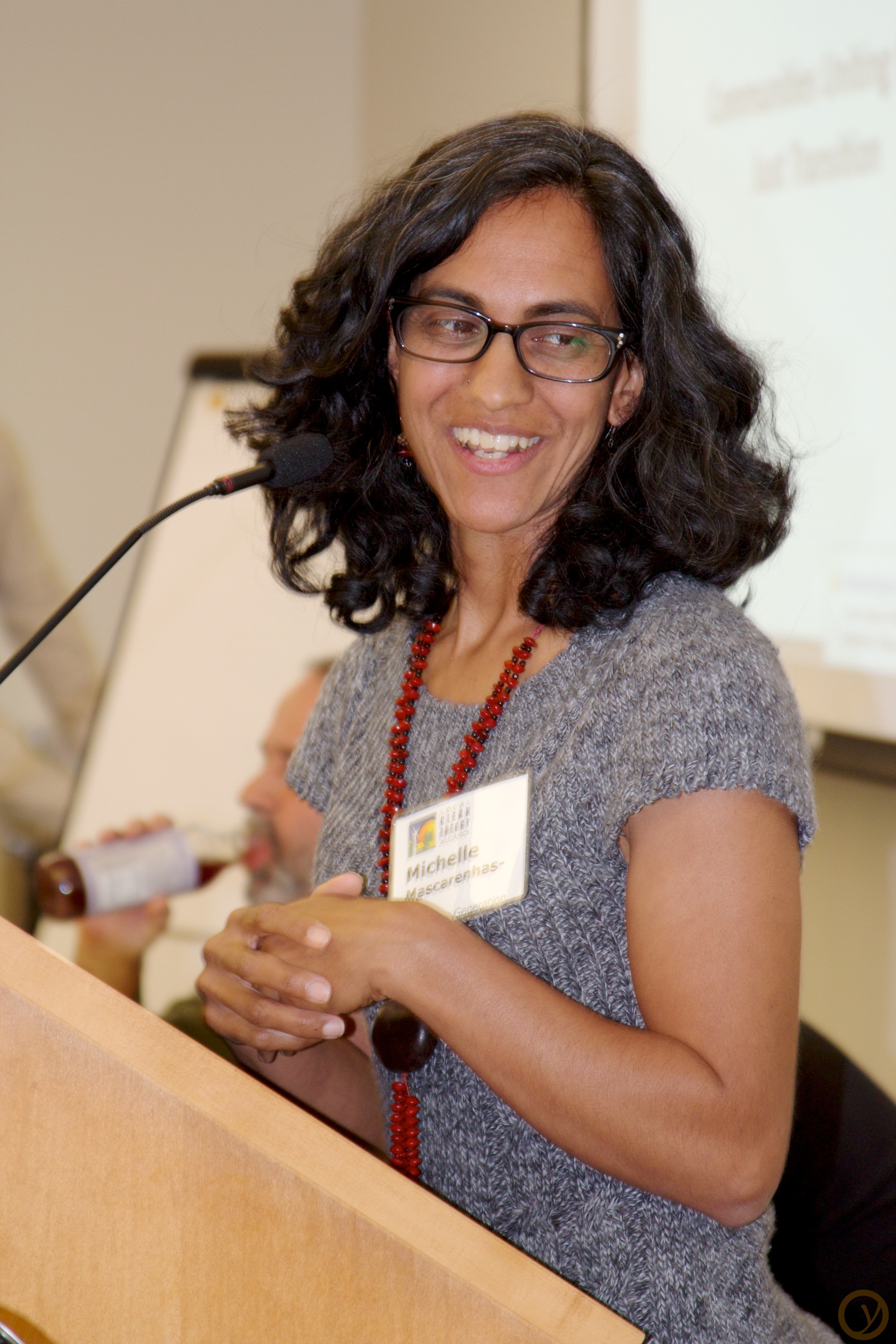
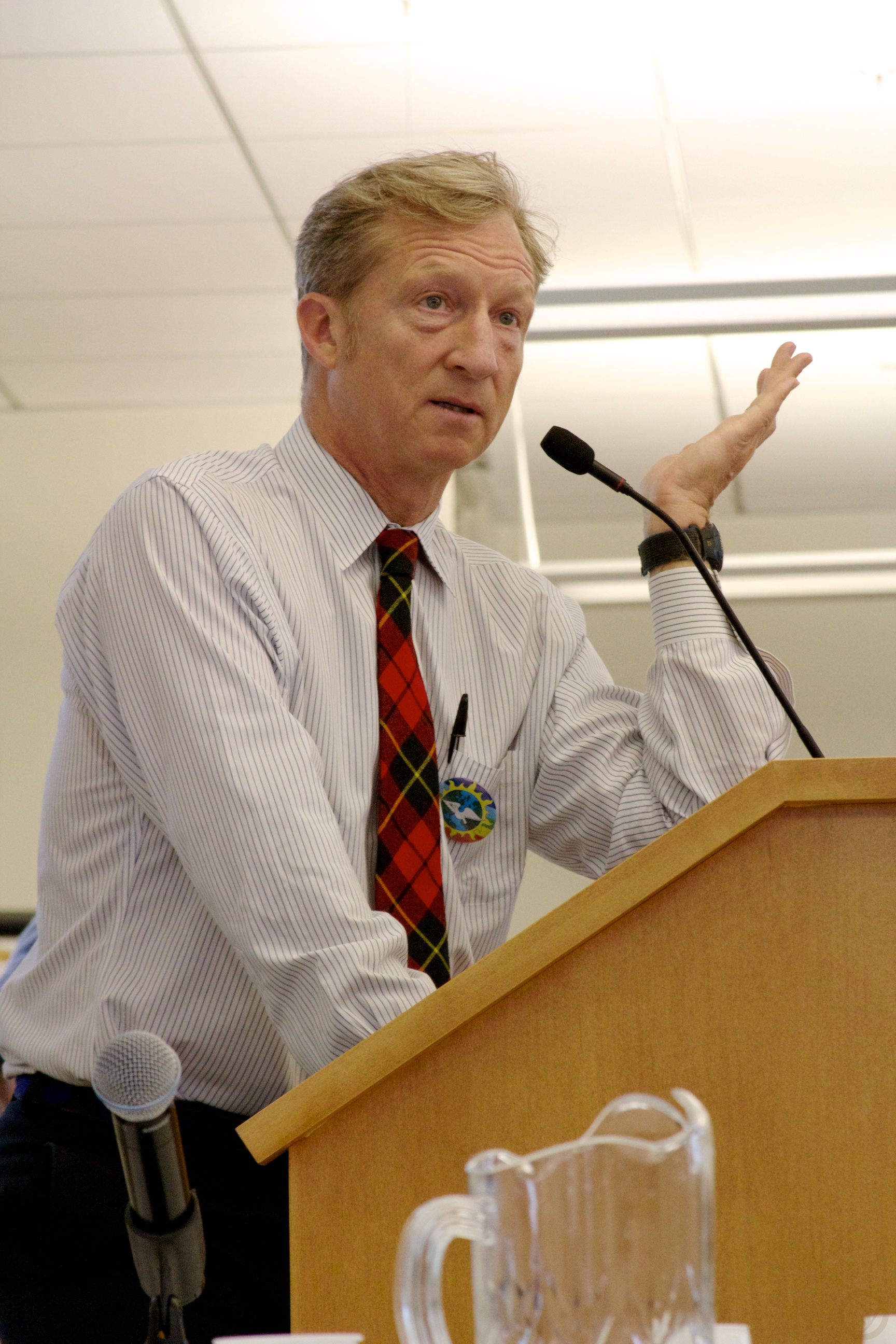

On October 17th, 2013, 170 community leaders and renewable energy advocates representing 90 organizations convened at the California Endowment’s Conference Center in downtown Oakland for the fourth annual Clean Power, Healthy Communities Conference, hosted by the Local Clean Energy Alliance. Photographs of the Conference as well as videos of the sessions are available on the Local Clean Energy Alliance’s Conference website.
 It is very important in the overwhelming avalanche of news and documentary sources that we receive on energy issues that we carefully scrutinize the sources of that information before we let them guide our thinking.
It is very important in the overwhelming avalanche of news and documentary sources that we receive on energy issues that we carefully scrutinize the sources of that information before we let them guide our thinking.
The case of the film, Switch is a prime example of this.
Switch is subtle and effective fossil-fuel industry propaganda. It pretends to support clean energy while subtly shifting the viewer's attention away from truly renewable strategies to accepting that fossil fuels, biofuels, nuclear, and other harmful sources will inevitably play a role in fulfilling future energy needs. In reality, the movie serves to slow down the transition to clean energy solutions and perpetuate fossil-fuel industry profits as long as possible.
Submitted by admin on Sun, 05/05/2013 - 12:53
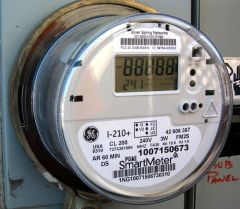 As Susannah Churchill of Vote Solar explains, net metering “allows customers who install solar or other clean energy to get fair credit on their power bills for the energy they feed back to the grid.” The question, though, is what constitutes “fair credit,” and whether net metering customers are passing on to other customers an unfair burden of utility transmission and distribution charges.
As Susannah Churchill of Vote Solar explains, net metering “allows customers who install solar or other clean energy to get fair credit on their power bills for the energy they feed back to the grid.” The question, though, is what constitutes “fair credit,” and whether net metering customers are passing on to other customers an unfair burden of utility transmission and distribution charges.
This question was the main topic at the Local Clean Energy Alliance’s well-attended April 24 program on how California values solar PV.
Pages